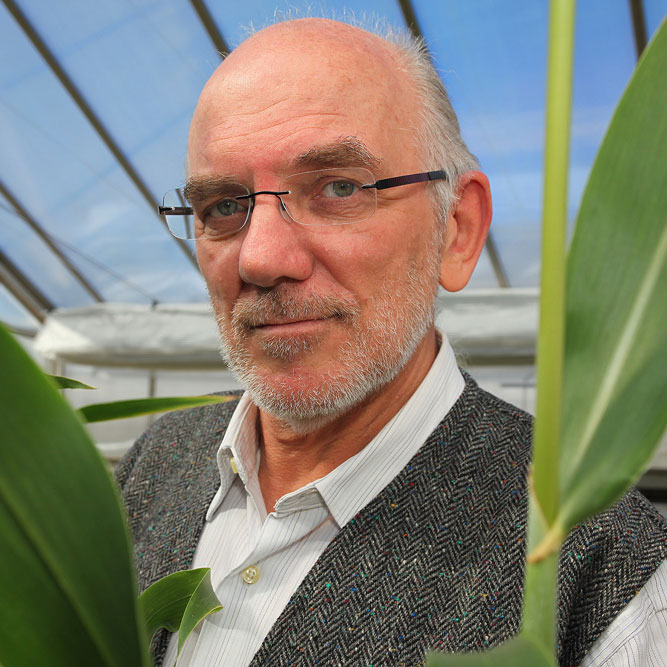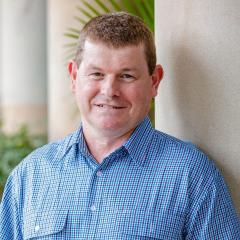
Pioneer and visionary are two of the words colleagues choose to describe crop scientist and climate modeller, Professor Graeme Hammer from The University of Queensland.
After an illustrious 40-year career, Professor Hammer is retiring from his role at the Queensland Alliance for Agriculture and Food Innovation later this month.
QAAFI Centre for Crop Science Director Professor Ian Godwin said his achievements continue to set the agenda in crop science.
“He had a vision for crop modelling to embed it with plant breeding programs and effectively make targets for plant breeders, rather than creating a new variety and then measuring everything afterwards,” Professor Godwin said.
“He was a pioneer, setting predictive targets to suit environments and to select varieties that are resilient and productive in environments that are becoming increasingly hostile.
“His international leadership in that space was probably helped by the fact that he lived in Australia.”
Professor Holger Meinke, the Chair of CGIAR’s Independent Science for Development Council, was hired by Professor Hammer for a junior modelling position in 1988, against the advice of his boss.
“I was wearing an earring that didn’t comply with public service standards at the time, but I never looked back and never took the earring out,” Professor Meinke said.
“Our partnership was career-defining, and without the opportunity Graeme gave me, I would not have had the satisfying career that I had.
“I followed him into climatology, a field he entered out of frustration because our scientific understanding of climate systems did not translate into actionable advice for farmers.
“By combining climate knowledge with systems modelling, we managed to fundamentally change that and put applied climate forecasting firmly on the map, first for Queensland, then for Australia as a whole and finally for the world.
“This was an amazing achievement.”
Professor Hammer and Professor Meinke were among the founding members of the Agricultural Production System sIMulator or APSIM initiative, a crop modelling system now used worldwide.
“APSIM has changed how we model agricultural systems and continues to have a profound impact on agricultural systems research,” Professor Meinke said.
Professor Hammer’s many students also form part of his legacy.
“He’s trained a lot of students here in Australia and from all over the world and is a major reason why QAAFI has a great international reputation in the crop area,” Professor Godwin said.
“People want to come here and work with our people and then go back and improve the physiology integration systems in their own country.”
“Graeme is a brilliant scientist and visionary who has the unique ability to combine insights from disciplines like plant and crop physiology, genetics, climatology, economics, social sciences into concepts that are not only scientifically sound, but also useful,” Professor Meinke said.
“He is equally interested in solving scientific problems and applying the solutions in real-world settings.
“His mantra has always been ‘information is only useful if it influences a decision’.
“He is also a nice bloke and a life-long, loyal friend.”
Professor Hammer's career will be celebrated with a Special Symposium "Ecophysiology and Modelling and the Nexus Between the Practice and Theory of Crop Adaptation" at UQ's St Lucia campus on August 28. Tickets are sold out, but there is a waiting list and the symposium will be available online for those who register here.
Images are available via Dropbox.
Media: QAAFI Communications, Natalie MacGregor, n.macgregor@uq.edu.au, +61 409 135 651.
The Queensland Alliance for Agriculture and Food Innovation is a research institute at The University of Queensland, established with and supported by the Department of Primary Industries.



